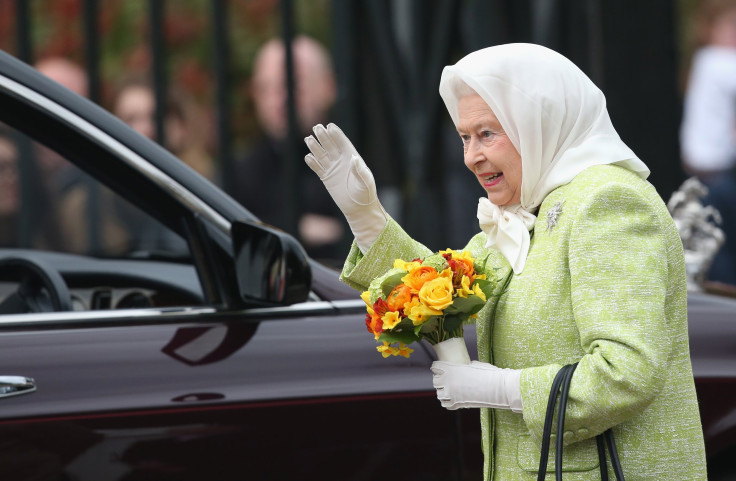Queen Elizabeth II Birthday: She Chose To Work On Her 90th, But For Other British Women, Working Past Retirement Age May Become Necessity

Britain's Queen Elizabeth II turned 90 Thursday, and she spent her birthday much the way any spritely new nonagenarian would — hard at work greeting cheering crowds and accepting flowers bestowed by well-wishers.
The vast majority of people don't celebrate their 90th birthday that way, and a day of royal work doesn't exactly compare with the labor of the toiling plebes. But judging from British labor trends, more and more Brits will be working way past age 65, thanks to financial pressures. And the outlook for women is even more abysmal thanks to a persistent gender pay gap, according to a new report.
...and the same journey in 30 seconds! #Queenat90 #HappyBirthdayYourMajesty pic.twitter.com/Zf1tVnlkiT
— BritishMonarchy (@BritishMonarchy) April 21, 2016
By the time non-royal working women in Britain reach retirement, they could face a pensions pay gap of 40 percent, according to research published Wednesday by the Fawcett Society, a British gender equality charity, and the University of Sheffield. The average pay gap of 13.9 percent is one factor in that divide, which is compounded population-wide by the fact that 52 percent of U.K. women are saving for retirement, versus 60 percent of men.
The researchers found that many women sacrificed portions of their pension contributions to cover childcare costs, or they took time off from work to take care of children.
Even when women are at work in the U.K., they make less than men — she earns 85.5 pence for every pound he earns. That disparity translates to a woman not being paid for an hour and 39 minutes of every working day, assuming she works 37.4 hours a week, the Telegraph has reported.
“The gender pay gap becomes a pensions pay gap in retirement,” Sam Smethers, chief executive of the Fawcett Society, said.
What all of this means for women who want to retire, the Fawcett Society's study said, is that they might be more dependent on their partners in retirement. Another option, bluntly put: They're fated to be old and poor.
But women could be forced into a third situation, too, which that study didn't mention. Maybe they just won't be able to retire when they had planned.
The number of people working beyond #retirement age is on the rise. We consider the impact http://t.co/UTFc76xuD6 pic.twitter.com/YdJdSPiHmR
— Schroders UK Retail (@Schroders_UK) March 30, 2015
A recent survey published in mid-April by Canada Life Group Insurance found that more than two-thirds of U.K. employees expected to continue working past the age of 65. Eight percent of those surveyed had expected to retire at 65 but were resigned to the fact that they would not be able to. Financial pressure was the No. 1 reason people would continue working.
Paul Avis, the marketing director of Canada Life Group, blamed interest rates. "Seven years of rock-bottom interest rates have had a lasting impact on a generation already plagued by insufficient pension contributions, with many forced to work past the age of 65," he said. "A wave of employees have been confronted with the hard truth they are going to have to work beyond the traditional retirement age."
For seven years, interest rates in the U.K. have remained at a record low of 0.5 percent. The Bank of England last voted in March to keep it at that rate, with dim prospects for a rate hike anytime in the near future.
Overall, Brits have a bleak outlook on retirement. In March, Willis Towers Watson found in its Global Benefits Attitude Survey that 21 percent of respondents in the U.K. believed they would not be able to retire until their 70s. And 3 percent despaired that they would never be able to retire at all.
Whatever the future has in store for would-be retirees, it probably won't look like this:
Signed, sealed, delivered @RoyalMail delivery office #Queenat90 pic.twitter.com/GKk4D312Oc
— BritishMonarchy (@BritishMonarchy) April 20, 2016
© Copyright IBTimes 2024. All rights reserved.






















